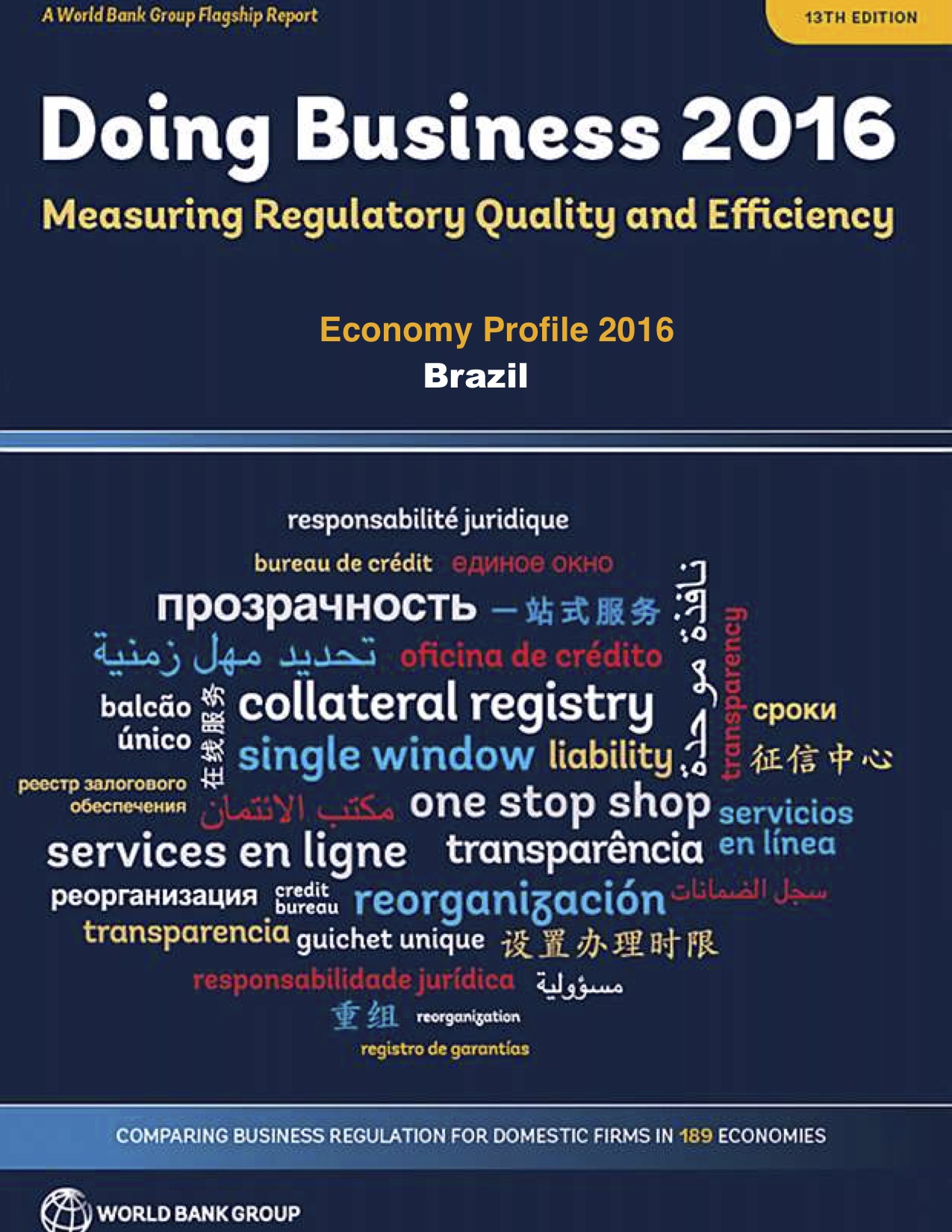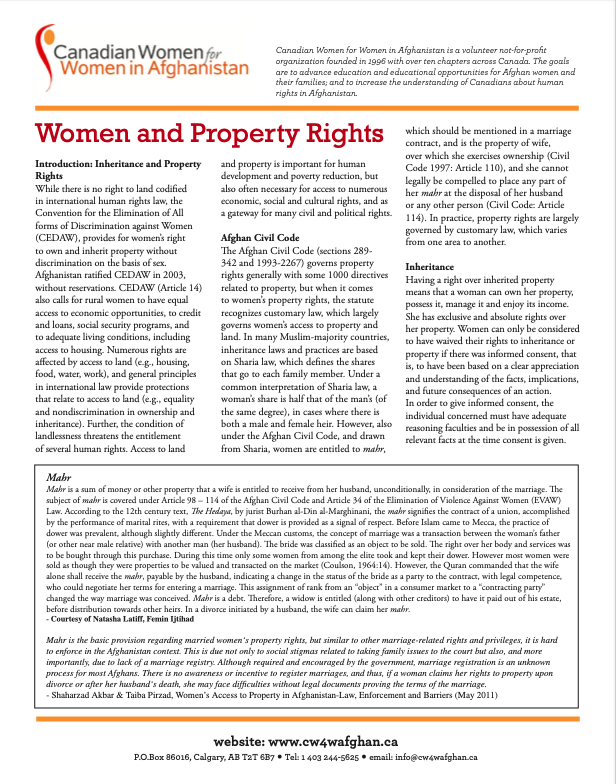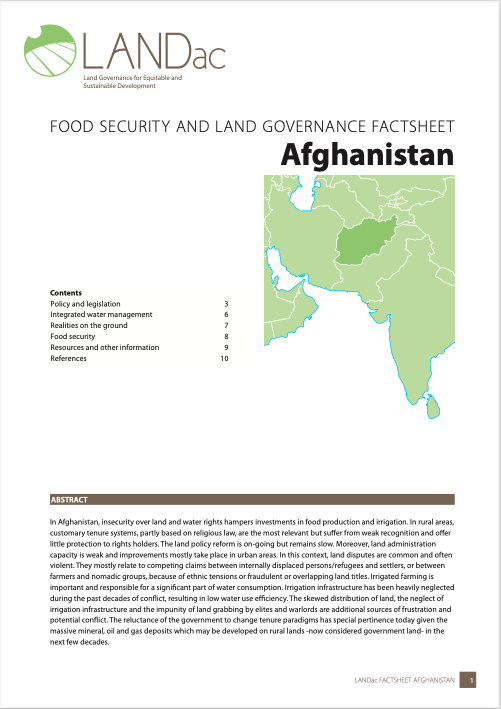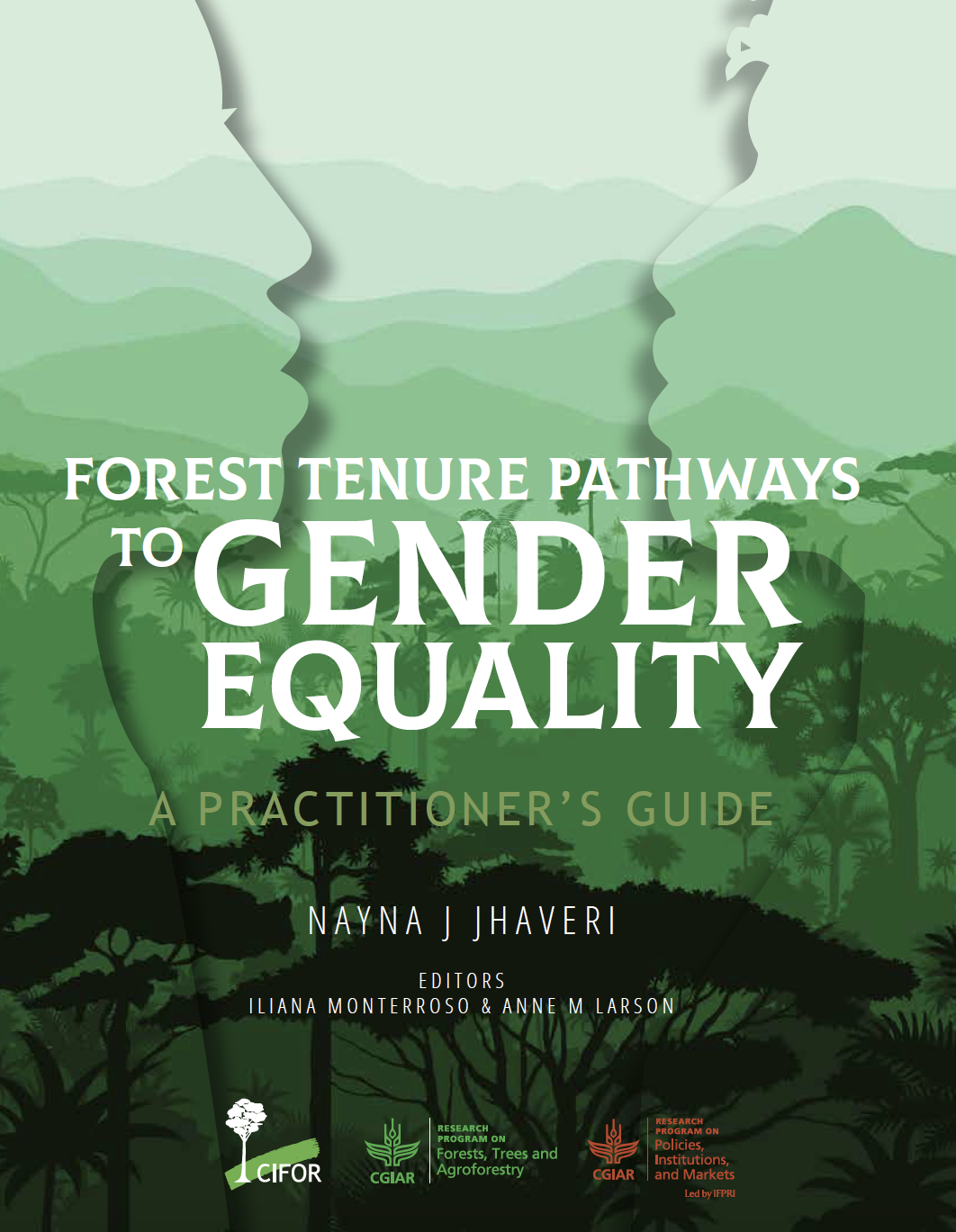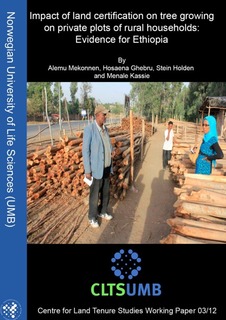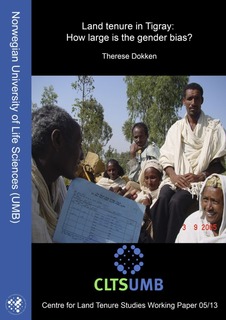Doing Business Economy Profile 2016
Women and Property Rights
While there is no right to land codified in international human rights law, the Convention for the Elimination of All forms of Discrimination against Women (CEDAW), provides for women’s right to own and inherit property without discrimination on the basis of sex. Afghanistan ratified CEDAW in 2003, without reservations. CEDAW (Article 14) also calls for rural women to have equal access to economic opportunities, to credit and loans, social security programs, and to adequate living conditions, including access to housing.
Food Security and Governance Factsheet: Afghanistan
In Afghanistan, insecurity over land and water rights hampers investments in food production and irrigation. In rural areas, customary tenure systems, partly based on religious law, are the most relevant but suffer from weak recognition and offer little protection to rights holders. The land policy reform is on-going but remains slow. Moreover, land administration capacity is weak and improvements mostly take place in urban areas. In this context, land disputes are common and often violent.
Forest tenure pathways to gender equality: A practitioner’s guide
This practitioner’s guide explains how to promote gender-responsive forest tenure reform in community-based forest regimes. It is aimed at those taking up this challenge in developing countries. There is no one single approach to reforming forest tenure practices for achieving gender equality and women’s empowerment. Rather, it involves taking advantage of opportunities that emerge in various institutional arenas such as policy and law-making and implementation, government administration, customary or community-based tenure governance, or forest restoration at the landscape scale.
Unlock the lock-in! Balance of rights in relation to betterment and compensation in Poland
Many Polish cities are faced with a dilemma: to enact their local land-use plans and be exposed to the immediate financial consequences of their adoption, or to protect their budgets against these costs and give up control of the development of the cities. There are very broad compensation rights for value decline due to planning regulations and for areas designated in plans for public roads.
Land tenure in Tigray : how large is the gender bias?
This study finds that female-headed households have 23% smaller owned landholdings and 54% smaller operational landholdings. Differences in characteristics such as age, labor, oxen and previous divorce explain less than half the differences in landholding sizes, while the remaining can be attributed to differences in returns to these characteristics. This indicates that there is a gender bias in access to land, even after land reforms that intended to strengthen women’s rights.
Decentralised land administration and women's land rights in Uganda : an analysis of the legal regime, state institutional arrangements, and practice; research report
Despite formal legal recognition of women’s land rights, no government institution is mandated to protect women’s land rights or to ensure their legal implementation and enforcement. The roles of decentralized land administration institutions do not include the protection of women’s land rights. More importantly, District Land Boards only control the allocation of public land and not private or customary. Several land dispute resolution institutions co-exist without clear coordination mechanisms.
Owning land a path out of poverty in Pakistan
For decades, efforts to distribute agricultural land more equitably consistently excluded women. Then, a groundbreaking research project made women part of the discussion. It set the stage for a provincial campaign that for the first time in Pakistan’s history transferred land to poor women.
Property rights and natural resources : socio-economic heterogeneity and distributional implications of common property resource management
Poverty, property rights and distributional implications of community-based resource management have become major topics of discussion and debate in recent years. This study tries to examine the contribution of community forestry to household-level income with particular emphasis on group heterogeneity and equity in benefit distribution. The assessment of household level benefits suggests that poorer households are currently benefiting less in absolute terms from community forestry than less poor households.


